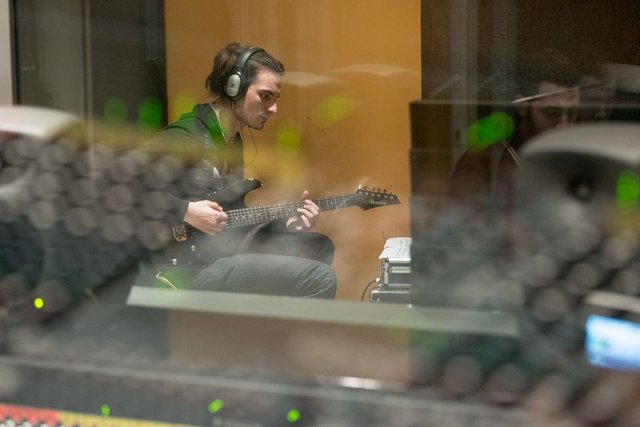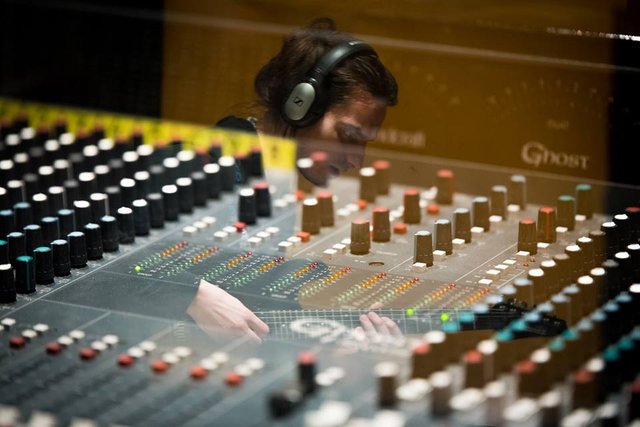3 strategies to instantly play what you hear
Hello dear person who happens to be interested in music , let me tell you something very important - developing your aural skills is CRUCIAL to your musical development ! And if you're wondering, by any chance , how to improve your aural skills , i have good news for you because i'm about to give my humble opinion and advice on that particular matter .
Firstly , i'd like to emphasize that gaining the ability to recognize musical relations between notes and chords doesn't come overnight . Although this has been said for any similar obtainment of skills enough times already , i still think that it can't be stressed enough . A lot of people ( especially in this day and age ) tend to have a wrong mindset about how improving yourself actually works and consistent , hard work seems to be the thing that many want to bypass . This particular skill is no different than any other in terms of things you need to do in order to obtain it . So , hard work and consistency are the key to success here . But enough of me going on about this general path of success that we all already know about - let's dive into some specific strategies that will help you reach your goal of being the ultimate hearing machine !

- BREAKING THINGS DOWN TO BASICS
The first strategy that i'd like to talk about is starting out from the most basic musical relations and those are intervals . Interval is defined as any distance between two pitches . They represent a building block of any music out there , so starting from that point would be a great choice . Start by listening to a particular interval , let's say a fifth , and really try to internalize the sound of that interval . Also , the ability to sing a certain interval is the ultimate test of whether you have internalized it or not . You don't have to be good at singing in order to do this , just sing it at sensibly correct pitch , it doesn't have to be perfect . Repeat this step with all other intervals until you can confidently sing and recognize any interval . Just a small note - this process might take even months to perfect so don't be discouraged if it doesn't work out in the beginning , just be persistent ! - LEARNING A LOT OF CHORD PROGRESSIONS
The second strategy is actually pretty straight forward - learn a bunch of tunes ! But , learn them in the following way - take any chord progression you like out of any song and loop it over and over and just play around with it . Try playing chords in different inversions , different keys ( very important ! ) different moods ( like ballad or an uptempo tune ) and internalize that as well ! Notice the word ''internalize'' being thrown around very often ? That's no coincidence - internalizing music is the best way to recognize it in different situations . Think of it like recognizing a face you've known all your life - even if that person puts on a silly wig or fake moustaches you'll still have no trouble recognizing him . After you've repeated the aforementioned process with many different chords progressions , soon you'll start naturally hearing those connections in other songs . If there happens to be a chord which you can't recognize at first hearing , knowing the rest of the progression will make it much easier for you to figure it out in a very short time .
3.TRANSCRIBE MUSIC ON A DAILY BASIS
Transcribing music which you've never heard before is probably the hardest , most energy consuming thing you can do as a musician , but it definitely brings you the biggest improvement in your aural skills . Start off by transcribing simpler songs and gradually work your way up to some harder ones . You can transcribe anything you like - chord progressions , chord voicings , melodies , solos ... Whatever you feel like doing that day . Also there are bunch of tools that can assist you in transcribing like programs that slow down music but do not interfere with the pitch of a song . I personally use ''Transcribe!'' , but there are many options to choose from and most of them will work just fine . There is a small downside to slowing down music you transcribe . Although it is very convenient , at the same time it confines you to an environment in which you'll never find yourself in . The places where you may need great aural skills are jam sessions , concerts and studios , and there won't be the time for you to slow things down , so i suggest you gradually stop using the slow downers and just transcribe straight away . The more you do it , the better you'll be at it , and soon you'll find yourself having an extra sharp ear which can pickup almost anything you hear , and you will thank yourself for taking the time to develop it .

If you're feeling brave already i suggest you take a crack at transcribing this solo . It has , beside enriching me with its melodic pleasures , given me a very hard time trying to figure it out by ear , but i has sharpened my skills greatly .
I hope you've found this post useful , happy training and thanks for reading :)
.jpg)
thanks that's really useful tips ! I tend to think the best radio we have is our own brain, in our own head, constantly playing tunes ! At my best I can listen to it, and even translate that on a DAW (I'm more a Digital Audio Workstation experimenter, producer soon I hope :D)
Great to hear that ! I'm glad you found it useful , and wish you all the best on your journey to becoming a great producer :)
thanks a lot, that's probably the best stage for me when you're just not caring at all about whatever happens with what you produce, I guess when it becomes shitty is when you actually have pressure ! If you have a soundcloud I'll add you there, I'm soon posting my main productions on myspace and youtube too : )